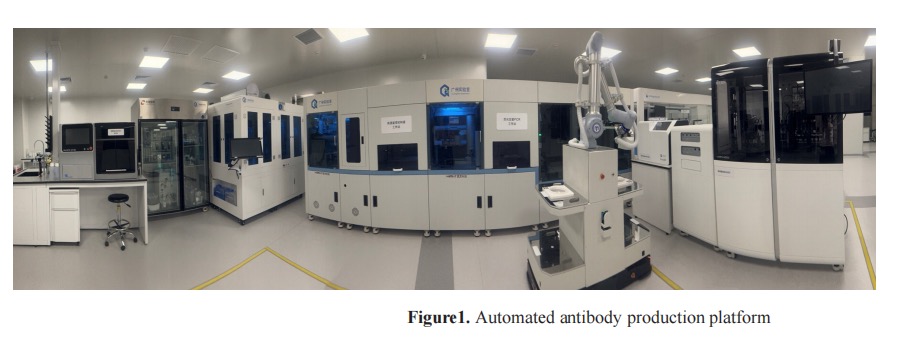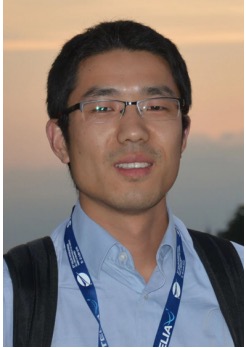EXTENDED ABSTRACT: Antibodies are essential raw materials for diagnostics and therapeutics, and traditional methods for antibody discovery are time-consuming and costly. With the continuous development of artificial intelligence, especially the emergence of large language models, we see the potential to directly design antibodies using AI [1-3]. The application of these technologies has accelerated the process o f d r u g d e v e l o p m e n t . However, despite significant progress, the accuracy of de novo designs still faces some limitations, one of which is the quality and p e r s o n a l i z a t i o n o f t h e training data. To overcome t h i s c h a l l e n g e , w e a r e dedicated to building a fully automated antibody production line that utilizes standardized equipment to produce high-quality and standardized antibodies while generating accurate affinity data. The automation of this production line not only improves production efficiency but also ensures the stability and consistency of product quality. By collecting a substantial amount of experimental data and integrating advanced data analysis techniques, we can generate more personalized and accurate training data, providing more reliable support for the learning of AI. This standardized production line not only helps improve the quality and efficiency of antibody production, but also brings new possibilities to the field of de novo protein design. Combining artificial intelligence with automated production equipment, we are expected to further enhance the accuracy and reliability of antibody design, providing more reliable and efficient solutions for future drug development and production.
Keywords: Antibody production; Automation; AI

REFERENCES:
[1].An, L., et al., Science, 385(6706), (2024) 276-282.
[2].Pillai, A., et al., Nature, 632(8026), (2024) 911-920.
[3].Shen, H., et al., Nature Nanotechnology, 19(7), (2024) 1016-1021.

Xiaobao Cao, graduated from ETH Zurich, is currently a PI at Guangzhou National Laboratory and deputy chief engineer of the Human Cell Atlas Large Facility. He was selected for the National Major Talent Project (Youth project). He is dedicated to medicine-engineering interdisciplinary research centered on bio-intelligent manufacturing technology and engaged in technological development of microfluidics, single-cell analysis, and life science automation. He has been awarded the Bank of China Innovation Elite Award, the First Prize for Scientific and Technological achievement of Shaanxi Higher Education Institutions and so on. He has also published more than 40 papers in journals such as Advanced Materials and Science Advances as the first author/corresponding author and holds more than 40 patents.